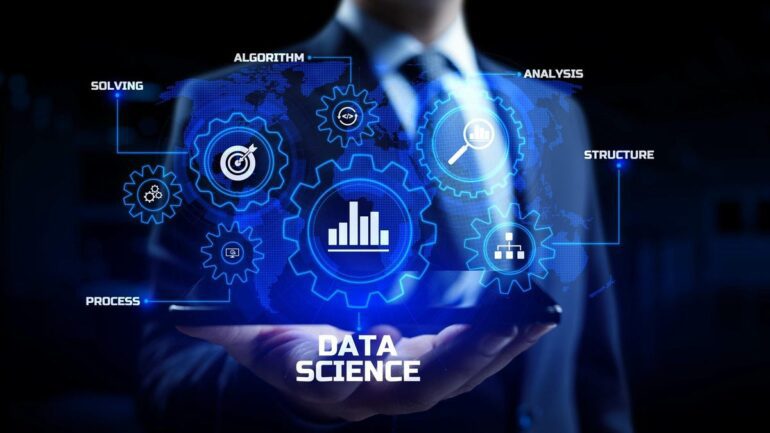TL;DR:
- Data science encompasses statistical analysis, computer science, and the scientific method to draw insights from raw data.
- Artificial intelligence (AI) is a subset of data science that utilizes algorithms to simulate human intelligence.
- AI enhances decision-making by autonomously making data-driven and logical choices.
- AI finds practical applications in speech and facial recognition, quality control, customer service, and more.
- Both data science and AI offer lucrative career opportunities and are projected to grow significantly.
- AI engineers specialize in developing AI algorithms, collaborating closely with data scientists.
- Extensive training in statistics, programming, and communication is crucial for data scientists.
- Proficiency in programming languages like C++ and Java is essential for AI engineers.
- While AI is transforming various industries, human data scientists will always be essential due to AI’s dependence on accurate data.
Main AI News:
In the world of advanced analytics, two prominent terms often emerge: data science and artificial intelligence (AI). While they may seem interchangeable, there are crucial distinctions between the two that shape their applications, advantages, and limitations. Understanding the disparity between data science and artificial intelligence is paramount to harnessing their full potential and leveraging them effectively.
Data science, as a comprehensive discipline, revolves around the analysis of data systems to extract meaningful insights and make predictions. It amalgamates statistical analysis, computer science, and the scientific method to draw inferences from raw and unstructured data. Through the aid of charts and graphs, businesses and organizations rely on data science to inform vital decisions regarding resource allocation and strategic planning.
On the other hand, artificial intelligence serves as a subset of data science, focusing on the processing of information to perform tasks traditionally executed by humans. AI encompasses a collection of algorithms that simulate human intelligence. These algorithms leverage machine learning and deep learning techniques to enhance decision-making processes as they continuously learn from new data.
One pivotal aspect that sets artificial intelligence apart is its unparalleled ability to analyze vast amounts of data at an astonishing speed, surpassing human capabilities. The advent of AI has revolutionized the data science field, amplifying its impact and potential for transformative change across industries.
The applications of AI are broad and diverse, demonstrating its instrumental role in decision-making based on data science insights. Data scientists generate reports that facilitate decision-making, providing predictions and occasional recommendations. However, the ultimate decision-making power often lies with human stakeholders such as business analysts. This is where AI steps in, offering the potential for data-driven and logical decision-making, autonomously executed by AI systems.
AI finds practical utility in a myriad of domains, including speech and facial recognition, quality control, customer service, environmental analysis, stock trading, and even medical diagnosis. Beyond automating repetitive tasks, AI excels in complex undertakings. Self-driving vehicles, for instance, rely on AI algorithms to navigate traffic using real-time sensor data. Moreover, AI powers virtual assistants like Alexa and Siri, as well as chatbots such as ChatGPT, streamlining interactions and enhancing user experiences.
Both data science and artificial intelligence present promising career opportunities, with handsome remuneration and a robust growth trajectory. AI engineering and data science, though distinct, intertwine and complement each other in the evolving landscape of advanced analytics. While AI engineering is considered a niche field within the broader data science domain, understanding AI concepts and methodologies is increasingly indispensable across all data science disciplines.
Data scientists, regardless of specialization, may incorporate AI in their work. However, the development of AI algorithms typically falls under the purview of specialists known as AI engineers. These professionals collaborate closely with data scientists to harness the potential of AI and amplify the impact of data-driven insights.
To embark on a career in either field, aspiring professionals must undergo rigorous training. Data scientists require extensive knowledge of statistics, computer programming, and effective communication to convey their findings persuasively. Proficiency in tools and languages like Python, MATLAB, R, SAS, SQL, and data visualization techniques is crucial for their success.
AI engineers, in addition to general data science skills, should possess proficiency in programming languages such as C++ and Java. The field of AI encompasses various specializations, ranging from AI research to machine learning engineering and AI architecture.
While AI is permeating numerous professions, spanning from data analysis to customer service, not everyone needs to become an AI expert. However, anyone pursuing a career in data science must cultivate a comfortable familiarity with AI technologies and their underlying principles.
Conclusion:
The distinction between data science and artificial intelligence is pivotal for the market. The evolution and integration of AI within the broader field of data science offer immense potential for businesses across industries. Leveraging the power of AI in decision-making processes can streamline operations, improve efficiency, and drive innovation. However, it is crucial to recognize that the expertise of human data scientists remains indispensable, as they ensure the accuracy and integrity of data inputs. A market that effectively combines data science and artificial intelligence stands to gain a competitive edge in an increasingly data-driven world.

